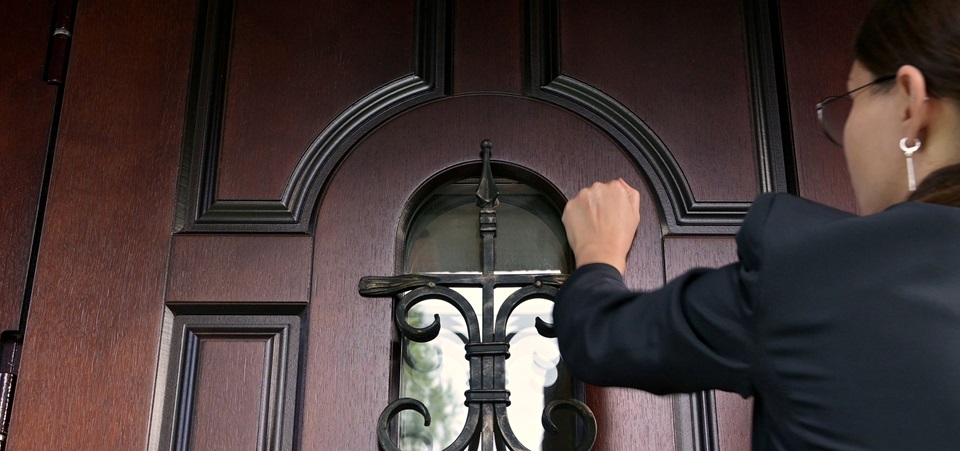Recovering debt is the process of retrieving outstanding payments that are owed to you by individuals or businesses. It involves various methods, such as reminders and negotiations, but if these methods fail to be effective, legal proceedings may be required.
Sara Beaumont, a director based at WHN’s Bury office and specialist in debt recovery, explores the legal right to enforce court judgments through bailiffs and enforcement officers to recover an outstanding debt.
What is a court judgment?
A court judgment is a type of court order in England, Wales and Northern Ireland that can be registered against a person or organisation if they fail to pay monies owed. This would commonly relate to issues such as unpaid invoices for goods or services, unpaid rent, or outstanding loan payments.
While a judgment means that the court has agreed that the debtor legally owes you money, the judgment automatically result in payment.
What is the difference between a bailiff and enforcement officer, when and why would I use one?
Once a judgment is obtained, there are several ways in which this can be enforced. One way to recover the funds is by bailiffs and enforcement officers who can attend the premises of the debtor and remove goods or money to the value of the debt.
The difference between using a bailiff or an enforcement officer is down to the value of the debt. If the debt is below £600, you must use the bailiff. If it is £600 or above, you can instruct a high court enforcement officer (HCEO) to try and recover the value of the debt.
If the debt is for over £5,000, the judgment must be enforced using the HCEO.
The process behind recovering a debt
An application is made to the court for a warrant of control which then allows the county court bailiff to attend the premises of the debtor and restrain goods to discharge the debt. A similar application can be made to the high court for a writ of control for debts above £600.
Before an application is made, the debtor must have failed to pay the amount ordered within the time allowed or failed to make at least one instalment due under the judgment.
A warrant/writ of control will only be effective if the debtor either has sufficient goods which could be sold at auction to meet the sum outstanding, or enough money to pay the judgment debt.
It is important to note that certain goods are exempt from being removed by the bailiff or HCEO, such as clothing, bedding, furniture, and household equipment, so it’s useful to know whether the debtor holds any substantial financial or fixed assets.
If it is a commercial debt, this information would have likely been obtained as part of the original due diligence process when onboarding the customer or client. For personal debts, this may more difficult. However, the creditor may know what car the debtor drives, in which case the HCEO may search the DVLA register to find out if they own the vehicle and if so, whether it is financed.
Using bailiffs and HCEOs is one of the most commonly used methods of collecting outstanding judgments, and can be very effective where the debtor has stock, machinery or office equipment, although goods can only be removed which belong to the debtor and not those belonging to any third party.
How can I reduce the risk of having bad debtors in my business?
If you operate a business, there are a number of effective ways to help reduce the risk of dealing with bad debts and to ensure that your customers pay on time, including carrying out credit checks, having robust contractual terms and conditions, and ‘foolproof’ invoices.
How legal professional support can help with debt recovery
Debt collection is a complex area of law, so it’s important that you seek specialist advice before you embark on recovering debt to ensure that you secure the money that is rightly owed to you and that you follow the correct legal procedures. Find out more in our helpful guide: How a legal professional can help with debt recovery: A guide for businesses – WHN Solicitors
For further information on dealing with debt recovery see our additional articles:
- How to obtain outstanding debt through insolvency proceedings
- Can I recover funds from a debtor’s wages?
- How to use a charging order to recover outstanding debt
- How to use third party debt orders to recover funds
Sara Beaumont leads a team of specialist debt recovery lawyers at WHN, providing advice to businesses and individuals on all debt recovery matters including pre-issue debt recovery, court action and enforcement.
Sara also specialises in resolving commercial disputes at all levels and is experienced in the use of alternative dispute resolution, particularly mediation. She deals with a variety of contractual disputes concerning issues with suppliers, customers and professional advisers.
For advice on debt recovery or commercial disputes, please contact Sara on 0161 761 4611 or email her at sara.beaumont@whnsolicitors.co.uk.













